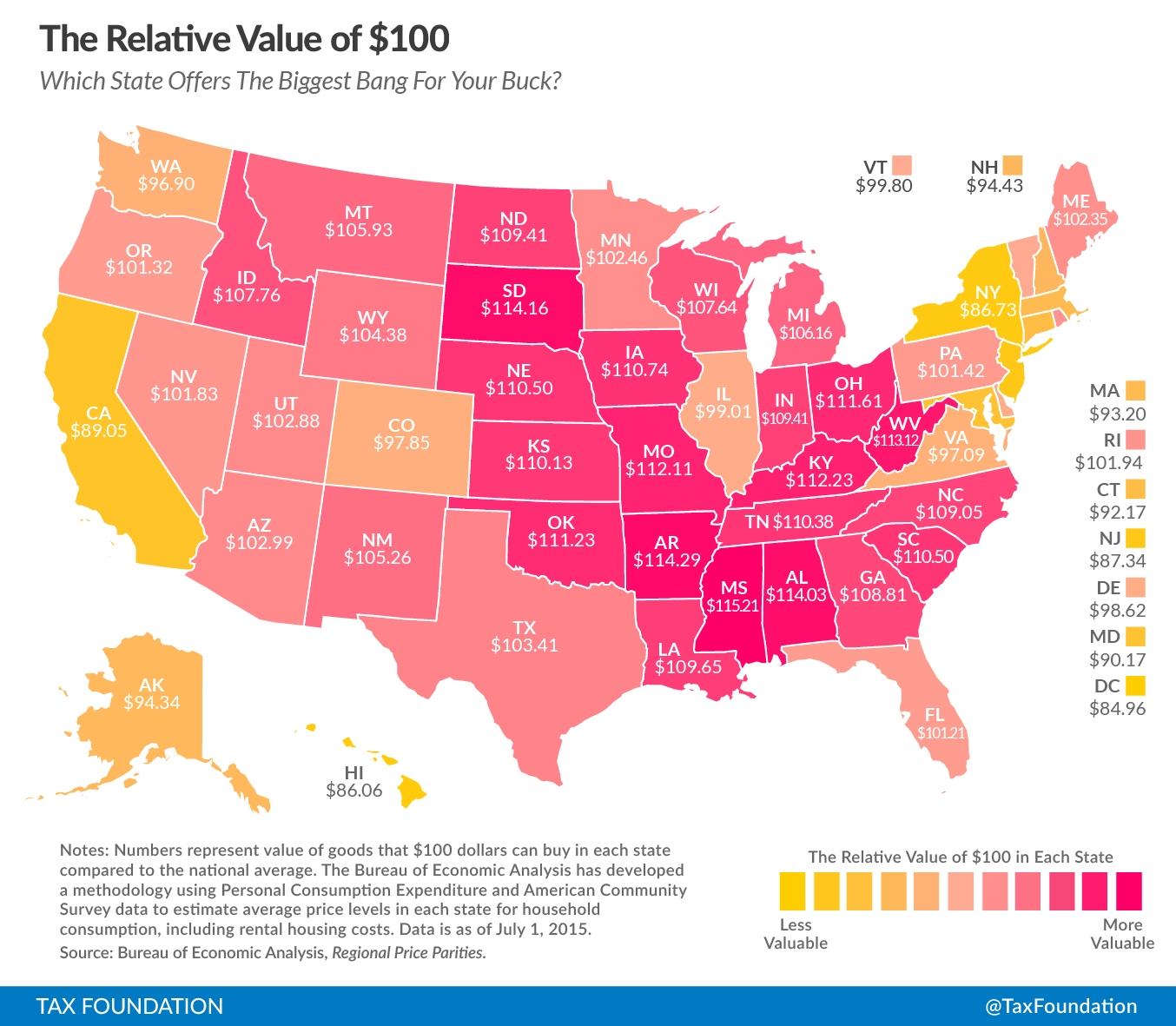How Much Is Your $100 Worth in Every State?

By:
If you want the most bang for your buck, you might consider moving to Mississippi or Arkansas, according to recent data from the Bureau of Economic Analysis. The federal agency, which works under the United States Department of Commerce, has been studying trends in pricing data for the past two years, and analysts from the Tax Foundation, a tax policy research organization, crunched the numbers to determine the "real value of $100" in each of the country's 50 states.
 Tax Foundation - taxfoundation.org
Tax Foundation - taxfoundation.org
The price of goods vary from state to state, and economists say that there are numerous factors that contribute to this trend, including the relationship between nominal incomes and price levels. For example, "in place with higher incomes, the prices of finite resources like land get bid up," Tax Foundation's Alan Cole and Scott Drenkard explain. "But the causation also runs in the opposite direction. Places with high costs of living pay higher salaries for the same jobs."
Labor economists call this "a compensating differential." That is, "higher pay is offered in order to make up for the lower purchasing power."
Cole told ATTN: that "the most remarkable thing about the data is the sheer scale of the difference between the cheapest states and the most expensive ones. Some states are 30-percent more expensive than other ones. In general, these differences in purchasing power reduce the inequality of incomes among states." In other words, low income states "are richer than we think, and high-income states are poorer than we think."
So where are the richest low-income states?
In Mississippi, the adjusted value of $100 is approximately $115.21; In Alabama, your standard Benjamin is worth about $114.29. By contrast, look at high-income states like California and New York, and you'll find that your money's relative value is less than you might expect—$89.05 and $86.73, respectively. At the bottom on the list, the purchasing power of people living in the District of Columbia is dramatically low: The value of $100 in D.C. is assessed to be worth only $84.96.
I asked Cole what this latest map means in comparison to last year's, and he said that "the stats don't change much from year to year because these price levels are largely determined by long-term trends."
"However, North Dakota was one of the biggest movers, with the purchasing power going from $110.62 to $109.41," Cole added. "This data was collected close to the height of North Dakota's economic boom from the Bakken Shale, so purchasing power in the usually-cheap North Dakota took a hit as people flooded into the area."
Tax Foundation argues that these findings stand to affect public policy in a significant way. "Many policies—like minimum wage, public benefits, and tax brackets—are denominated in dollars," the organization remarked. It is, as one prominent rap group previously remarked, "all about the Benjamins" after all.
